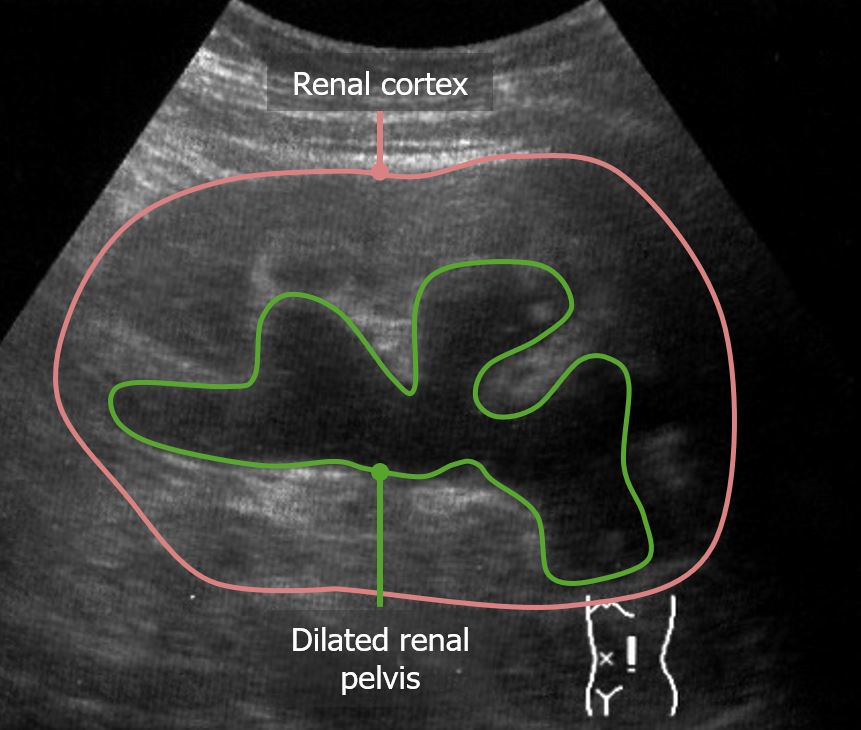Playlist
Show Playlist
Hide Playlist
Chronic Kidney Disease (CKD): Patient Care
-
Slides Nephrology Chronic Kidney Disease.pdf
-
Reference List Nephrology.pdf
-
Download Lecture Overview
00:01 Okay, so we would just talked about interventions that can help to slow the progression of chronic kidney disease. 00:07 But how do we care for these patients when they're sitting in front of us? One of the things that I want you to really keep in mind particularly if you were going to into Primary Care is how you can refer these patients to a nephrologist in an appropriate amount of time so that we can help to slow the progression of their disease. 00:23 So we really want patients referred early in their course. 00:26 Typically when that GFR is less than 45 to 60 mils per minute. 00:30 Or if they have albuminuria severely increased albuminuria, like greater than 300 milligrams per day and that we find that early referrals may be associated with not only helping the patient but lower healthcare costs and a decrease in morbidity and mortality to that patient population. 00:46 So I do want you to think about referring that patient to a nephrologist who has experience in treating chronic kidney disease to help that patient population. 00:54 Remember cardiovascular risk factor modification if you don't take anything else away from this lecture, I do want you to remember that patients who have chronic kidney disease are at an increased risk of having cardiovascular events. 01:06 And this is what they succumb to. 01:08 So it's critical to be a good cardiologist in a sense and think about modifying those risk factors. 01:13 So those patients really should be on HMG-CoA reductase Inhibitors like statins for their hyperlipidemia, and we need to really think about lifestyle modifications. 01:21 They should be exercising if able 150 minutes per week, weight loss, tobacco cessation is critical. 01:28 And again, I think using a holistic approach where you have resources that you're calling on from the community to help your patient is going to be critical in their success. 01:37 And finally preparing our patients for renal replacement therapy. 01:40 So for those patients who are stage for chronic kidney disease and we know they're going to progress. 01:46 It's important to educate them and discuss options of renal replacement therapy, which is typically initiated when that GFR drops to somewhere between 6 and 15 mils per minute. 01:58 Now interestingly, renal replacement therapy should be initiated regardless of GFR if they develop symptoms of uremia, and those include patients who are constantly nauseated who have emesis repeatedly vomiting and retching there anorexic, they're just not hungry for food. 02:13 They complained of dysgeusia, meaning that they have an altered taste sensation food either tastes like metal or cardboard. 02:19 They might have itching pruritus, altered sleep habits where they have impaired ability to sleep or they're hyper somnolent during the day and people who have mental status changes who can't think clearly and of course anybody who has a pericardial effusion or hemorrhagic pericarditis from uremia automatic indication to start to start renal replacement therapy again regardless of what the GFR is. 02:42 So when it comes to renal replacement therapy, there's a couple of different ways that we can provide this to our patients. 02:48 We have In-center hemodialysis. 02:50 And this is I think what most people traditionally think about when it comes to renal replacement therapy. 02:56 These are people who go to a dialysis center. 02:58 Maybe three times a week. 02:59 They dialyze for 4 hours a day. 03:02 But there's also home hemodialysis. 03:04 This is fantastic for people who are working or people who want to remain at home and do this within the comfort of their home, their own home. 03:12 We'll talk a little bit more about this in our renal replacement lecture. 03:16 There's peritoneal dialysis again a home therapy that actually uses your peritoneum as a dialyzer. 03:21 It's very cool concept. 03:22 Again, people can do this at home while they're sleeping and finally there's kidney transplant. 03:28 That's that golden opportunity and that's what I strive for as a nephrologist. 03:32 When that patient is sitting in front of me because I know that gives them the best quality of life and certainly the best survival. 03:40 So again, when you're talking about renal replacement therapy, what's really important is that patients need to be educated. 03:47 They need to be educated and informed because when they do they become more engaged they're more proactive and they can participate in shared decision making with their providers, which is so important when choosing the right dialysis modality for them. 04:01 So please be cognizant of really kind of putting that education in their early. 04:05 So those patients have time to think about the options they know exactly what they want to do when that time comes. 04:11 It is also important to notice pre-emptive transplant is going to offer the best survival advantage, but it's not always possible. 04:17 So again when that patient sitting in front of me, I'm always thinking about how can I transplant that patient but if they're medically unsuitable or psychosocially they just don't have a supportive environment or perhaps they have advanced age. 04:29 I might not be able to give them that. 04:32 And finally in our patients it's who are choosing hemodialysis. 04:36 It's important to put in permanent vascular access. 04:39 So essentially that is that connection between an artery and vein called a fistula so that can be ready for that patient to do hemodialysis if that's what they're choosing and it takes about 8 to 12 weeks for that fistula to mature. 04:52 We'll talk a little bit more about that again in the renal replacement therapy lecture. 04:56 So what I'd like to really kind of before we conclude what I'd like you to keep in mind is that although there is a high burden of chronic kidney disease and many of the diseases that we talked about today are progressive. 05:09 With vigilance, and with care, along with some of the newer therapies that are coming along. 05:15 I think we can really make an impact in the life of these CKD patients and with that we've concluded our CKD lecture.
About the Lecture
The lecture Chronic Kidney Disease (CKD): Patient Care by Amy Sussman, MD is from the course Chronic Kidney Disease (CKD).
Included Quiz Questions
Which of the following is an indication for renal replacement therapy in patients with CKD?
- Symptoms of uremia
- GFR = 75 mL/min/1.73 m^2
- Age > 65 years
- Serum creatinine < 1.2 mg/dL
Which type of renal replacement therapy has the most favorable outcome?
- Renal transplant
- Home hemodialysis
- Peritoneal dialysis
- In-center hemodialysis
What is a possible benefit of referring a patient with CKD to a nephrologist in a timely manner?
- Decreased mortality
- Increased morbidity
- Higher health care costs
- Higher rate of progression to ESRD
Which of the following is NOT a sign or symptom of uremia?
- Hypervigilance
- Nausea
- Dysgeusia
- Pruritis
- Pericardial effusion
Customer reviews
5,0 of 5 stars
| 5 Stars |
|
1 |
| 4 Stars |
|
0 |
| 3 Stars |
|
0 |
| 2 Stars |
|
0 |
| 1 Star |
|
0 |
Dr. Sussman is great. She made it feasible, for a beginner like me, to learn the foundations of very complicated diseases. Thank you very much.




